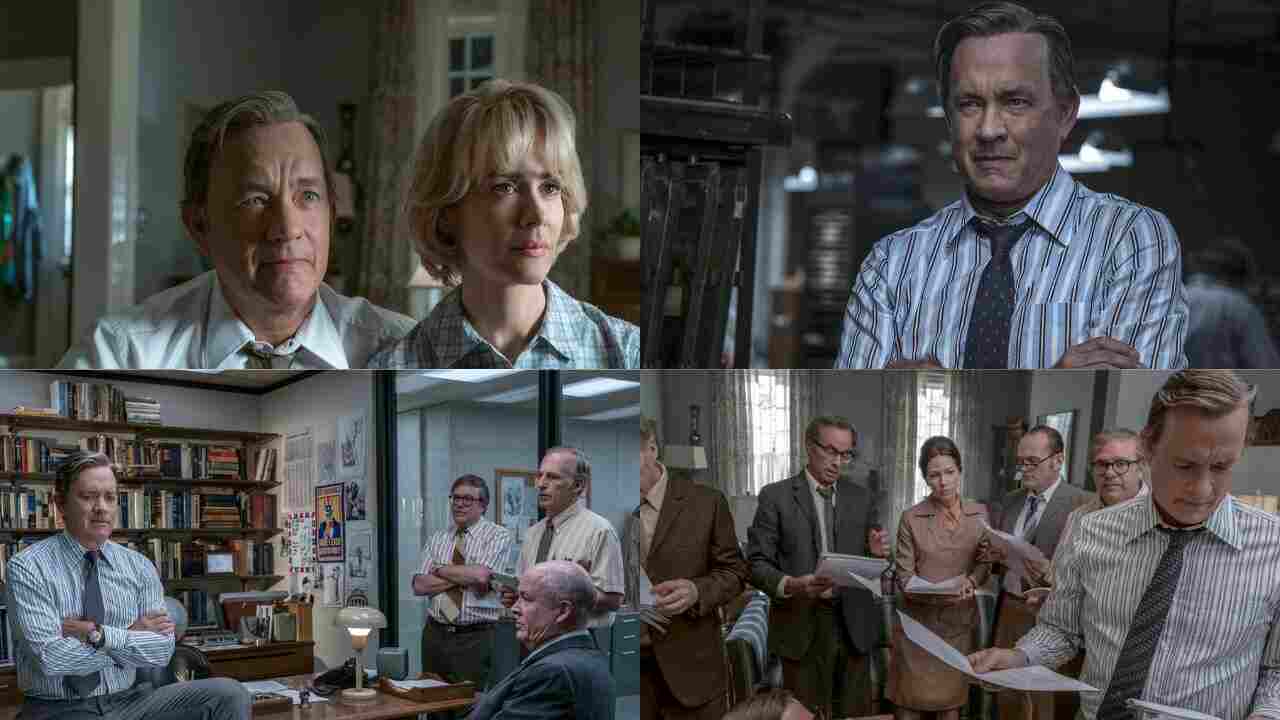Please enter keywords
Please enter keywords
Story: The Post Full Hd Movie– In 1971, Washington Post publisher Kay Graham and editor Ben Bradlee risked everything by publishing the Pentagon Papers, which exposed government secrets.
The Post Full Hd Movie: Steven Spielberg’s gorgeous new film wears a large, thumping heart on its perfectly fitted sleeve. Liz Hannah, a first-time screenwriter, makes a thrilling picture about the Washington Post, its editor Ben Bradlee, owner Kay Graham, and what seems to be their platonic workplace romance while publishing the Pentagon Papers in 1971. Despite legal threats and boardroom fainthearts, their aim was to reveal the truth about how the US administration misled Americans about the unwinnability of the Vietnam War. The scoop laid the groundwork for the Watergate probe.

The film is a striking tribute to liberal morality in the past and inferred present. Its actors’ unadorned surnames have been placed on the poster above the title with granite simplicity: “Streep Hanks The Post”. These are clearly designed as Lincoln-Memorial-level rebukes to today’s numerous sordid slides in Washington and Hollywood.
We have a set of beautiful madeleines from 1971. Smoking in the workplace. Smoking and drinking during leisurely meals in panelled dining rooms, which are sometimes interrupted by persons presenting urgent messages. Dialer phones. Payphones. Hot metal kind. The newsroom shirtsleeves and ties are mainly done up. A US president who is nasty but not ignorant. People who disclose leaked information without being besieged in London’s Ecuadorian embassy. People who share stolen documents without ultimately supporting a nasty and foolish administration. To add to the stunning historical realism, Spielberg uses some of his signature middle-distance sound design and overlapping speech from the 1970s.
Tom Hanks and Meryl Streep have superb performances, albeit neither is a stretch, and both have a little, delightful hint of cheese. Their characterisations are lavishly cushioned, effortlessly fluid, and brimming with relatability.

Streep plays Graham, a Washington socialite who inherited the business from her late husband and is scared by the possibility of taking the paper public on the stock market at this time of crisis, as well as the disdain she receives from the menfolk. It’s a depiction that combines her social warbler Florence Foster Jenkins with her gimlet-eyed magazine editor Miranda Priestly from The Devil Wears Prada.
Hanks channels his inner Jimmy Stewart as editor Bradlee, a seasoned newspaperman and former Kennedy consigliere. He might be gruff and short-tempered, but he is always compassionate, and we get a glimpse into his personal life. He is definitely a far cry from Jason Robards’ more obstreperous, unfolksy depiction of Bradlee in All the President’s Men, in which he memorably growls that he would not replicate Nixon’s filthy language since the Post was “a family newspaper”.

The third character, The Post, achieves its climax when it is humiliatingly outdone by a brilliant story, as the New York Times declares it has solid evidence of government deception in Vietnam. However, an injunction prevents the Times from publishing; instead, an unnamed source (a mystery young lady) puts some of these documents in the Washington Post’s lap. Reporter Ben Bagdikian (Bob Odenkirk) hunts down their source, retired Pentagon analyst Daniel Ellsberg (Matthew Rhys). He turns up this massive collection in its entirety, and the race is on to publish before the attorney general’s office may prolong the legal restriction any further. But the Post’s stuffy and pusillanimous board is concerned that they will all go to jail. Graham has to demonstrate some toughness.
Graham ultimately gives the go-ahead after much deliberation: “Yes … yes … um …” Major decision… “Let us publish!” It’s the type of wild, ridiculous moment at which history really turns. And I adored the moment when Bagdikian had to chat to Ellsberg on a payphone outdoors near a loud off-ramp while spilling his quarters all over the pavement.

But what about Ellsberg? In the aftermath, we get a fairly rushed depiction of Bradlee and Graham euphorically defending their case all the way to the Supreme Court, as a stream of idealistic young women stare reverently at Graham, bestowing on her a feminist stature that may not have been obvious at the time. However, the case of Ellsberg, who faced a 115-year jail sentence before having it overturned, is mostly forgotten. There is a problem in the film. Despite this, it’s a gripping drama about principle. In some ways, it’s a rallying cry.
There are no reviews yet.